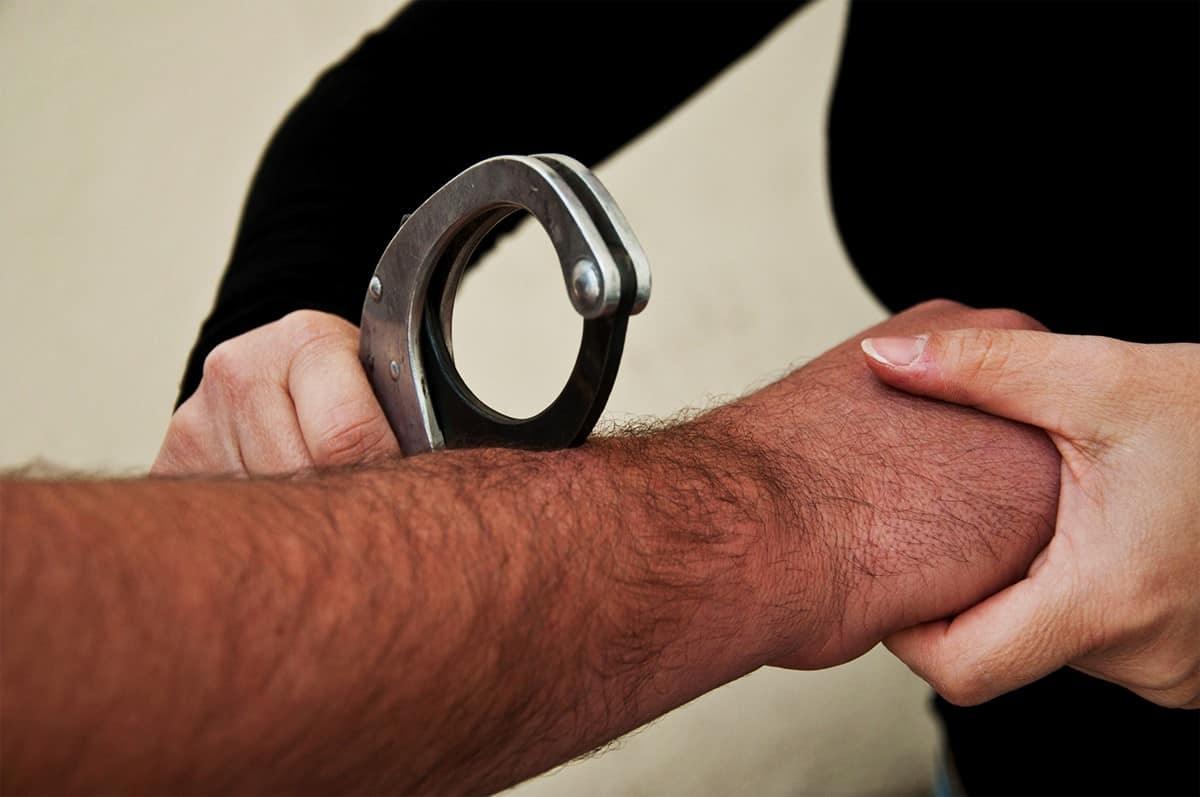Understanding Colorado’s Stand Your Ground Laws in Self-Defense Claims
August 26, 2025

Posted by: Jacob E. Martinez
Category: Drug Crimes | Marijuana | Violent Crimes
As one of the first states to legalize recreational marijuana, the country has been looking to Colorado to see what effect legalization would have on our crime rates, incarceration rates, and overall functioning as a state. Among the many studies and reports taken in the few short years since the legalization of marijuana, one in particular looks at the rate of violent crimes in Denver.
According to drugpolicy.org, Denver saw a 2.2% decrease in all violent crimes in the first 11 months of 2014. Burglaries decreased by 9.5%, and other property crimes decreased by 8.9%.
Depending on the situation surrounding a burglary, a burglary charge could either be considered a non-violent offense or a violent offense under Colorado law. Some property crimes, like burglary, are considered violent crimes, but most are considered non-violent crimes and are therefore listed separately in the report’s statistics.
Violent crimes are a specific set of offenses, often with different sentencing and penalties. But what makes a crime a “violent” crime in our state?

Offenses that are typically classified as “non-violent” include:
Some violent crimes include:
Assault and battery are the most common forms of violent crimes in Colorado. Let’s briefly review their definitions, as they are important to keep in mind when considering any offense that could be considered a crime of violence:
Battery (also known as “menacing”) – threatening the use of or invoking the imminent fear of committing serious bodily harm to another person
Assault – knowingly or recklessly causing bodily harm to another person

According to Colorado Law 18-1.3-406, “Any person convicted of a crime of violence shall be sentenced pursuant to the provisions of section 18-1.3-401 (8) to the department of corrections for a term of incarceration of at least the midpoint in, but not more than twice the maximum of, the presumptive range provided for such offense.”
Basically, this law means that when you are convicted of an offense that is considered a violent crime, you will go to jail.
Threats of violence or recklessly causing harm can turn a non-violent crime into a violent crime within seconds, which will drastically effect sentencing and penalties for the offenses committed.
You might have noticed that burglary shows up on both lists. The difference between first and second degree burglary is serious, especially when you consider the laws concerning incarceration for violent crimes. Even if you commit a crime that is typically non-violent, additional actions or threats can put you at risk for being charged with violent offenses and being subject to the incarceration laws reserved for violent crimes.
Let’s look at one example regarding burglary. Second degree burglary is committed when someone enters a building with the intent to commit a crime. First degree burglary is committed when someone enters a building with the intent to commit a crime and:
If someone engages in burglary and threatens to use a firearm (whether they are actually armed or not), they have committed a crime of violence. If, however, the offender keeps his or her mouth shut through the burglary, then the crime remains non-violent.
Since there are certain exceptions and rules regarding when a non-violent crime is considered a violent offense, one defense strategy you can use with your attorney is arguing that the offense did not involve any threats of or bodily harm to the victims involved.
Using this defense may convince a judge to drop certain counts and drastically decrease your sentence. You may even avoid jail time.
If you have been charged with a violent crime, you face harsh penalties and lifelong consequences. Contact a Colorado criminal defense lawyer today to get started on crafting a strong, serious defense strategy.
About the Author:
Denver-based criminal defense and DUI attorney Jacob E. Martinez is a knowledgeable and experienced litigator with a record of success providing innovative solutions to clients facing criminal charges of any severity. Mr. Martinez has been designated a Top 100 Trial Lawyer by the National Trial Lawyers and has been awarded both the Avvo Client’s Choice Award and Avvo Top Attorney designation, evidencing his reputation for his exemplary criminal and DUI defense work and high moral standards.
Jury Trial - Not Guilty
Jury Trial - Not Guilty
Arapahoe 1st Degree Assault/Vehicular Assault
Jury Trial - Not Guilty
Denver Domestic Violence Assault Case
Jury Trial - Not Guilty
Denver D.V. Assault
Jury Trial - Not Guilty
Denver Careless Driving Resulting in Death
Jury Trial - Not Guilty
Jefferson County Felony Menacing
Jury Trial - Not Guilty
Adams County DUI
Jury Trial - Not Guilty
Jefferson County DUI
Jury Trial - Not Guilty
Jefferson County DUI
Jury Trial - Not Guilty
Jefferson Vehicular Assault/DUI
Jury Trial - Not Guilty
Jefferson County DUI
Jury Trial - Not Guilty
Boulder County DUI case
Jury Trial - Not Guilty
Arapahoe County DUI case
Jury Trial - Not Guilty
Adams County DUI case
Jury Trial - Not Guilty
Douglas County DUI case
Jury Trial - Not Guilty
Gilpin County DUI case
Dismissed
Broomfield County Probation Revocation case
Dismissal
Arapahoe County DUI case
Deferred Judgment
Arapahoe County DUI case
Deferred Judgment
Douglas County DUI case
Deferred Judgment
Larimer County DUI case
Deferred Judgment
Arapahoe County DUI Case
Deferred Judgment
Denver Felony Burglary Case
Deferred Judgment
Arapahoe County DUI case
Dismissed
Arapahoe County Protection Order Case
Dismissed
Golden Destruction of Property case
Dismissed
Jefferson County Protection Order case
Dismissed
Jefferson County Domestic Violence case
Dismissed and Sealed
Jefferson County DUI case
Dismissed
Denver Major Traffic Offense case
Dismissed and Sealed
Broomfield County Domestic Violence case
Dismissed
Summit County DUI Revocation
Dismissed
Denver DUI Revocation
Dismissed
Denver DUI Revocation
Dismissed
Denver DUI +.2 Involving Accident and Injury case
Dismissed
Denver DUI/Habitual Traffic Offender case
DISMISSAL
Denver District Aggravated Theft
Dismissed
Greenwood Village Assault case
Dismissal
Elbert County DUI
Dismissed
Arapahoe County Domestic Violence case
Dismissal
Jefferson County DUI
Dismissal
Denver Municipal Assault
Dismissed
Boulder County Domestic Violence Assault case
Dismissed
Wheat Ridge Assault case
Dismissed
Jefferson County DUI case, with 2+ Prior Convictions
Dismissed
Arapahoe County Domestic Violence case
Dismissed
Broomfield County Domestic Violence case
Dismissed with No Charges Filed
Jefferson County Felony Theft case
Dismissed
Arapahoe County Felony Theft case
Dismissed
Boulder County Felony Theft case
